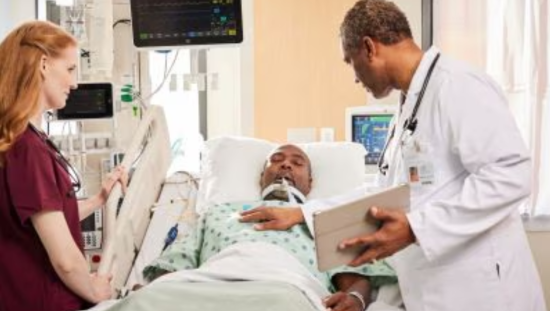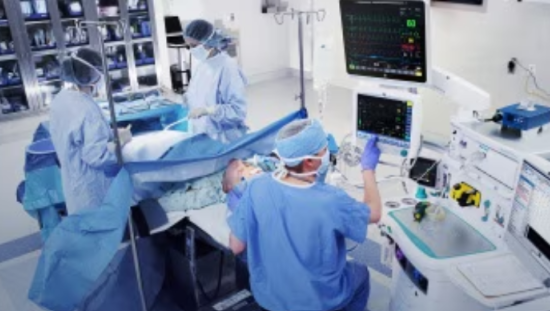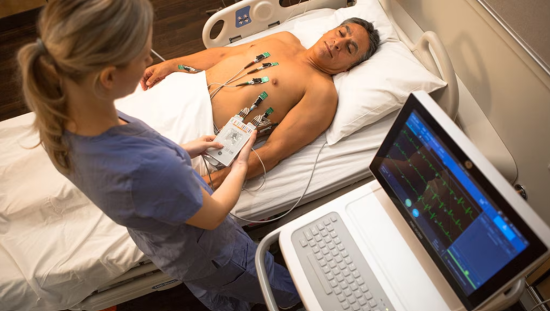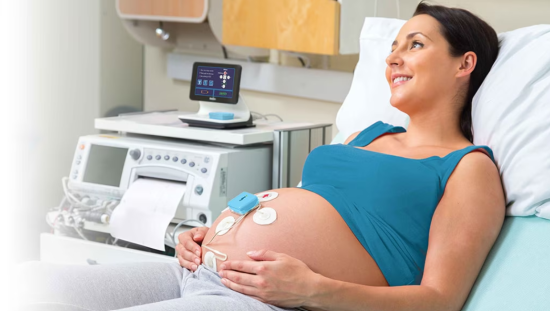The World Federation of Societies of Anaesthesiologists | ESAIC 2023
-
Desiree ChappellImage
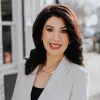
-
Andy CumpsteyImage
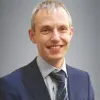
-
Prof. Monty MythenImage
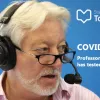
-
Adrian GelbImage
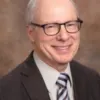
-
Wayne MorrissImage
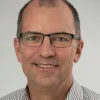
-
Christian WernerImage
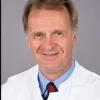
In this Top Med Talk podcast, Desiree Chappell, Monty Mythen and Andy Cumpstey speak to Adrian Gelb, Professor (emeritus) in the Department of Anesthesia & Perioperative Care, University of California San Francisco (UCSF) and Immediate Past President of The World Federation of Societies of Anaesthesiologists (WFSA) and the current president; Wayne Morriss, Clinical Associate Professor, University of Otago, Christchurch and Christian Werner, Chair of Anesthesia at Johannes Gutenberg University in Mainz and WFSA Chair of the Scientific Affairs Committee
Show Notes
Transcript
Speakers
In this Top Med Talk podcast, Desiree Chappell, Monty Mythen and Andy Cumpstey speak to Adrian Gelb, Professor (emeritus) in the Department of Anesthesia & Perioperative Care, University of California San Francisco (UCSF) and Immediate Past President of The World Federation of Societies of Anaesthesiologists (WFSA) and the current president; Wayne Morriss, Clinical Associate Professor, University of Otago, Christchurch and Christian Werner, Chair of Anesthesia at Johannes Gutenberg University in Mainz and WFSA Chair of the Scientific Affairs Committee
Desiree Chappell: Top Med Talk. Well, hello and welcome to Top Med Talk. We are at Euroanesthesia 2023 in Glasgow, Scotland for the annual meeting of the European Society of Anaesthesiology and Intensive Care. I'm Desiree Chappell, your host of Top Med Talk, and I'm joined by my partner in crime, my co-host, Monty Mythen. Hello, Monty.
Monty Mythen: Great to be here, Desiree. Always good to be here.
Desiree Chappell: It is! End of day one, busy day for us on Top Med Talk, per the usual.
Monty Mythen: Very busy day for you. Quite a busy day for me. But you've had some new helpers today, which have been great.
Desiree Chappell: We have, yeah. A new voice, Andy Cumpstey, has joined us from South Hampton. He came up for the weekend, and he's done brilliant. I love it.
Monty Mythen: He's already a bit good, I'd say. I'm getting a bit nervous.
Desiree Chappell: You should. I said, you did have some big shoes to fill, but I think he has big feet. But anyway, Andy has been a great addition, and we've had a great day. He was able to go to opening session when we didn't. And so he gave us all the skinny, which sounds like it was great. We got to hear bagpipes because when you're in Scotland, you would expect it to hear bagpipes. That was a real treat.
Monty Mythen: It was excellent. The parade came right in here to right next to us.
Desiree Chappell: Yeah.
Monty Mythen: And the kilt and all the... It was wonderful.
Desiree Chappell: It was good stuff.
Monty Mythen: Piping away.
Desiree Chappell: And it's been sunny, and we actually did a walkabout a little earlier and saw the sun in Glasgow.
Monty Mythen: And we had 15 minutes outside. The lovely gentleman out there looking after the car park told us it was 23.5 degrees Celsius. And it was going to be warmer.
Desiree Chappell: Yes. June in Scotland, so who knew? But anyway, we are here on the GE HealthCare booth. We just wanted to give a big shout out to them and thank them so much for the support that they give Top Med Talk. All of our sponsors do. But it keeps us going, it keeps us able to provide free, open medical education to the world, really. Right, Monty?
Monty Mythen: Absolutely. So, we're just coming up on two million downloads since we started in just about 100 countries around the world. The list is always lovely to look at to see how far down it goes. We'll hear about a longer list of countries shortly, I think.
Desiree Chappell: We will, yeah.
Monty Mythen: But it's great to have the right thing about podcasts and the internet is a tremendous reach. And because of the sponsorship, we keep it entirely free, open access. There are just over 1,700 podcasts out there now covering almost everything in the peri-operative space. But there's always more to talk about.
Desiree Chappell: Yeah, absolutely. Well, Monty, we love coming to meetings like Euro-Anesthesia, like ASA, all the different places we've been, our own and pop meetings. We get to see our friends that we've had over the years and made over the years here on Top Med Talk. But it's always great to meet new folks as well and bring them into the Top Med Talk family.
Monty Mythen: So, a little bit of context. As we said, this is the European Society, it was the ESA. It became the ESAIC, so it's a European society. We worked recently and in the past with the American Society of Anaesthesiologists, and there's a British equivalent. And as you start going around the world, there are lots of societies of anesthesia. So, I think we're now going to hear about this wonderful thing that's been around for a good period of time now called the World Federation of...
Desiree Chappell: Of societies of anaesthesiologists. A bit of a mouthful, but so excited to welcome a past president and a current president of the WFSA, the World Federation of Society of Anaesthesiologists here on Top Med Talk today. Adrian Gelb is joining us. Hello, Adrian. How are you?
Adrian Gelb: Hello, Desiree. I'm doing well. I've had a wonderful day here at Euro Anesthesia 2023.
Desiree Chappell: Yeah, fantastic. Well, Adrian, for those who may not know you, tell us a little bit more about where you're from and currently what you're doing.
Adrian Gelb: I'm originally from South Africa, I spent the majority of my adult life in Canada and currently an anesthesiologist in San Francisco. So, a little travel over my...
Desiree Chappell: Roundabout.
Adrian Gelb: Roundabout. But it gives one the opportunity to meet many interesting people and to see healthcare practice in a variety of different domains, which is part of what made me really interested in participating in WFSA.
Desiree Chappell: Yeah. Well, tell us a little bit more about WFSA.
Adrian Gelb: So WFSA, as the name states, is a World Federation of national societies. We currently have 135 national societies encompassing about 140 countries. Some small countries come together to form a single society, that's why there are more countries than there are national societies. But we are the overarching group bringing together anesthesiologists from around the world. We estimate somewhere in the order of about 500,000, a half a million anesthesiologists are actually members of the WFSA because if one's national society is a member, one is automatically a member as well.
Desiree Chappell: Oh, got you.
Adrian Gelb: And that sometimes comes up as a quirky question. Somebody says, how do I join the WFSA? And I say to them, well, your national society is a member, so you are already member. So, roll up your sleeves and get to work helping us make anesthesia safer, more accessible around the world.
Desiree Chappell: Yeah, that's great. Tell us some benefits and some of the things that the WFSA offers to their members from across the world.
Adrian Gelb: So, two of the areas of focus are education. And education is predominantly offered in lower resource areas through short courses, online webinar activities, YouTube channel, and also from our very popular anesthesia tutorial of the week, which actually, in truth, comes out about every 10 days or 12 days.
Desiree Chappell: We understand.
Adrian Gelb: But it gets up to 20,000 downloads, so it's really popular. It's entirely free and it's good quality. It's essentially a short book chapter and it's not just aimed at those who are not particularly knowledgeable. I tell our trainees it's a great way to keep track of what's happening in anesthesia to keep educated. It's good reading between cases or over lunch. And if one's interested, it comes with a quiz. We don't provide CME because of the complexity of global CME, but we do provide a certificate of completion.
Desiree Chappell: Yeah, perfect.
Adrian Gelb: That's some of the stuff we do on the education side. Then advocacy is another big part of what we do. We are, in WHO and World Health Organization jargon, a non-state actor in official relations. At the WHO level, we are the official voice of anesthesia. If WHO has questions, any of the portfolio’s groups want information about anesthesia, they come to us. And probably more frequently, we go to them and tell them here are important aspects of anesthetic care that you need to include in WHO resolutions and work.
Desiree Chappell: Fantastic. And so, Adrian, you have been an immediate past president, correct? Of the society?
Adrian Gelb: Correct.
Desiree Chappell: And what is the term usually for that?
Adrian Gelb: So, the term of the president is two years. The term of the past president is also two years. So, I've been accompanying Wayne, and as we're good friends, we work more or less as co-presidents. But through his two years of presidency, I've been the immediate past president. And then at the wonderful forthcoming World Congress of Anaesthesiologists in Singapore in March 2024, both Wayne and I will step off the board.
Desiree Chappell: Yeah. Well, that's great. Well, introducing our next guest, we have Wayne Morriss. Wayne, thank you so much for joining us.
Wayne Morriss: You're welcome, Desiree.
Desiree Chappell: Congratulations on your... Or I should say, is it congratulations? Moving on to the next step, immediate past president. Tell us, Wayne, where are you from? And then give us a little bit more about your background.
Wayne Morriss: So, I'm a New Zealander. I was born in New Zealand, and I currently work as a specialist, anesthetist, or anesthesiologist in Christchurch, which is in the South Island. I trained in New Zealand and also Australia, but then spent a couple of years working in Fiji. So, I have a pretty good knowledge of the Pacific and I've worked and taught in the Pacific and Asia.
Desiree Chappell: Yeah. And how did you get involved in WFSA?
Wayne Morriss: Well, it sticks its claws into you. It's sometimes difficult to get away. But I guess I became more and more involved with teaching and clinical work around the Pacific region. I then started getting involved in other educational projects further afield. And in 2008, I became a member of the Education Committee, which is one of the most active committees of WFSA. That led on to my becoming chair of the committee. And then I was on the boards. I became the director of programs, then was elected as president-elect during that time, the day during that I joined as president.
Desiree Chappell: Oh, lovely. And so, both of you have been... So, you've been around for a little while and through COVID. And now on the other side of COVID, tell us about some of the things that the WFSA has been active in the last couple years during your presidency.
Wayne Morriss: Well, it's a relief that we're able to some of our activities going after the Pandemic. But I guess just front of mind at the moment is that last week both Adrian and I and some other colleagues were in Geneva. We were at the World Health Assembly, which is the main decision-making meeting of the World Health Organization. And it's just so important that Anesthesiology has a voice at that particular meeting because that's the meeting where all the governments of the world, all the ministries of health of the world, basically set health policy for the globe. And if you're not at the table, you're on the menu.
Desiree Chappell: I heard that one, yes.
Wayne Morriss: And so, it's so important that we tell people at Geneva the key decision makers about what our role is, why we're important to the whole to our healthcare delivery in general. And I think one thing that we forget in Anesthesia is that Anesthesiology is that often people do not understand that we have roles both inside and outside the operating theater. So obviously you have roles as critical care medicine specialists. We also have special expertise in pain management, also emergency care and resuscitation. One of the things that we did during this Congress was to support a resolution, speak in support of a resolution, which was on integration of emergency, critical and operative care. And I think that's good for our specialty because it raises in the minds of some of these decision makers of the important role that Anesthesiologists play in that integrated care.
Monty Mythen: Wayne, do you think that message was easier to get through after the COVID-19 experience where Team Anesthesia seemed to be the answer to almost everything? I'm overstating that, but you know what I mean when they said, who can step up and do everything?
Wayne Morriss: Yeah, it's a good question, Monty, because I think we need to keep on reinforcing that message that Anesthesiologists played an incredibly important role during the Pandemic because we are a specialty that doesn't have a high profile. But I think probably at this time, more than ever before, there is at least some understanding of the multiple roles that we play in healthcare.
Monty Mythen: So in the interest of time, we want to take this opportunity to sit down, not only to make people more aware of the WFSA, we'll come back towards the end as to where we find all that wonderful material, which I'm guessing not as a website, etcetera, to talk about the World Congress. I wanted to grab and talk about that straight away because I'm a very big fan of the World Congresses. I've been to a number of them to participate, I've written a few articles about them in the past, invited by the College of Anesthetists, for example, because it's such a very the word unique is overused, but it is not a very unique because that's ridiculous.
Adrian Gelb: That's America.
Monty Mythen: It's a unique catering.
Desiree Chappell: It's special
Monty Mythen: And it's unique in so many different ways. And I encourage anyone listening, if they want to prioritize a meeting to go to, I don't undermine all those other ones, which I'm just doing. But the World Congress is really worth trying to get to and it's got some challenges we'll get to in a moment because if you're going to have a gathering of people from those hundred plus countries around the world and you want to have discussions that can make sense almost everywhere, that in itself is challenging. We all, I think, here, work in this ridiculously well-resourced world where we keep telling each other that we don't have enough of X, Y and Z and we're often so far removed from the reality of what it's like to try and deliver health care in very many places. So I'll be quiet now, having teed that up. And in the interim of being quiet, I'm also going to hand over in a second to another guest. But you take over.
Desiree Chappell: Yeah. While you're doing that, Monty, we'll mute you here in just a second. Speaking about that, when we were at the ASA this last year, we had conversations with the global scholars who are part of the WFSA, if I'm correct in stating that.
Wayne Morriss: I think those scholars were mainly supported by the American Society, but they are also people that we know very well. We've met them during a lot of the WFSA's work.
Desiree Chappell: Yeah. And they were talking about that and just saying how when we come together in the situation with a World Congress to be represented by those scholars, it's really unique, really interesting. So we have now Christian Werner join us, who is the program chair for the upcoming World Congress. Christian, thank you so much for joining us.
Christian Werner: Thank you.
Desiree Chappell: Yeah. So tell us a little bit more, just your background, where you're from, where you practice.
Christian Werner: Well, I'm a German guy. I've studied medicine at the University Bond, Germany, the old capital, and moved on through Hamburg. Those were stages of my career into Munich. And I'm for the past 19 years chairing the Anesthesia Department at the University in Mines, Germany, which is a very old city of Roman Foundation, actually 2200 years old, west of Frankfurt. Very close to Frankfurt. And now famous for BioNTech. Who invented this COVID vaccine? Actually, a company which is a spinoff of our university.
Desiree Chappell: Really? Oh, well, that's unique. Interesting. Well, Christian, you are program chair, correct, of the upcoming meetings. Tell us a little bit more about your role in that and what's coming up, what we have to look forward to.
Christian Werner: Well, I am a program co chair because we have basically one host, which is the WFSA, the World Congress of Anesthesiology is the Congress of the World Federation Societies of Anesthesiology. Then we have a program co chair who derives from his role, and that's my role as the Scientific Affair Committee Chair of the WFSA. It's sort of like a born role that you have, but we have very active and visionary co chairs from the Singapore Society of Anesthesiology, it's Professor Leon Ka, and more so, Professor Sophia Chu. She is the current president of the Singapore Society. And both of those colleagues are just great and have temper and heat and just make this whole progress very prolific and it's a pleasure to me to work with them.
Desiree Chappell: Yeah. And what do we have to look forward at the meeting, you know, thematically? What do you feel it's going to be?
Christian Werner: Well, it's not one single header. According to the mission of the WFSA, you will have a lot of education, but there will be cutting edge research, there will be, of course, discussion of guidelines and the matrix by which we currently believe Anesthesiology should be conducted. And it was very important to the presidents and I, of course, support that. It was important to have diversity, equity and inclusion as part of this program. And so I do think we found a nice mélange, a nice equilibrium between all of these parameters. And it's definitely worthwhile coming to Singapore to network, learn, enjoy new formats such as simulation formats that have never been existing before, like World Anesthesia games here, it's called the serious games. I can't wait to travel into there for the first and second week in March as of next year.
Desiree Chappell: Yeah. Well, Adrian, unfortunately, I guess the World Congress was during your tenure as president. So it's been a full eight years then since well, I guess seven years now, but will be eight years since we've actually come together as a federation.
Adrian Gelb: Absolutely. And I think there's a pent up interest in getting together again. Christian sort of emphasized some of the science aspect, but for me, having attended every World Congress since, I think, 1988...
Desiree Chappell: Wow.
Adrian Gelb: ...A key feature is the diversity of attendees and the diversity of the presenters. You come to a meeting like Euro Anesthesia or the ASA or any other regional or national meeting, you meet other people from other places, but 99% of the speakers are local. Part of the magic of the World Congress of Anesthesiologists is, it is speakers from around the world. And so you get to hear different perspectives, different ideas, different medical challenges, aspects of care. Gee, never really thought of that, as a problem or as a way of dealing with a problem. And then, of course, there's the social opportunity to meet people from around the world, talk about their clinical practices, their challenges, their family activities, what they do on vacation. It's an opportunity, in a simplistic sense, to surf the world and experience both the Anesthesia end of it and the social and personal engagement. Yeah, it's magic!
Desiree Chappell: I'm excited to go! Wayne, for you. In your presidency, we talk a lot about diversity. How are you bringing and your thoughts on bringing together these people from all over the world and specifically under resourced countries? That's where I am really interested, because I think there's a lot for us in the resource world to learn from those folks.
Wayne Morriss: It's challenging. Just getting to a place like Singapore can be very expensive, especially if you're living and working in, say, a country in sub Saharan Africa or perhaps a country in Latin America. But we really have worked very hard, as Christian said, to have a balanced representation amongst our speakers. And we will be offering the opportunity for attendees at the World Congress to listen in virtually.
Desiree Chappell: Oh, great.
Wayne Morriss: So all lectures will be available on demand after the event, and there will be some live streaming of key events during the meeting itself.
Desiree Chappell: Very good.
Wayne Morriss: So I think going forward, we think the world has changed. We need to be offering a hybrid type of event, and this will be really the first major World Congress where that's been the case. In 2021 because of the Pandemic, we had to change from an in person event to a fully virtual event. So we have had some experience in running a virtual event, but we are going to be holding a hybrid event this time.
Desiree Chappell: Yeah, that's great. And what about people who are interested in supporting those who otherwise couldn't make it themselves? There are a lot of people that I know that like to support, people like global Scholars or up and coming researchers in sub Saharan Africa or otherwise.
Wayne Morriss: We would love individuals or societies or industry or other friends to provide some funding to get what we call Scholars to the World Congress. So we are offering a scholarship program.
Desiree Chappell: Great.
Wayne Morriss: And we are certainly hoping that we'll have funding for at least 50 Scholars, but hopefully a lot more, for young Anesthesiologists to attend the World Congress. And often these people will be presenting posters, some of them may be presenting during the main program, but they are people that will really benefit from being part of this international global community. They'll benefit from meeting the people at the World Congress and forming those professional relationships and what we do find with the scholarships is that the people that are able to participate are the same people that become leaders and teachers back in their own countries. So the Global Scholars that you mentioned before that were at the American meeting and previous scholars that we've had attending the All African Reach Anesthesia Congress or the World Congress in days past, they are the same people that are now leading their departments. They are, in some cases, ministers of health, playing other non Anesthesiologist leadership roles. And I think it's something that we perhaps don't realize when we're attending major meetings the importance of professional networks. It's not just about the knowledge and skills that you get from attending a lecture or workshop.
Desiree Chappell: Yeah, absolutely. Well, Christian, to that point, where do we find out more information just about the meeting in general, and then if we were interested in supporting it in other ways?
Christian Werner: Well, we have the website, of course, the WCA website, which is open. The abstract submission website is open, the program is printed out, so you'll see the entire array of topics that will be displayed. And for the scholarship, I mean, potential sponsoring, it would be the WFSA website or just get in touch with me in person. My email is available throughout the entire system so that I can funnel or direct the information towards our offices and hopefully that is something that people use.
Desiree Chappell: Yeah, and we will be sure on this podcast when we put it out to have links to all of
Wayne Morriss: thank you very much.
Desiree Chappell: Yeah, that'll be wonderful.
Wayne Morriss: I was just going to expand on what Christian said. The website is www.wfsa.org. So we've only been able to just touch on a few of the activities that WFSA has been involved with or is involved with. So the website has a good description of the range of activities, and it also will have links to the World Congress and hopefully people that are interested in sponsoring these very important parts of our global anesthesia, they're really key members of our global anesthesia community. And I'm really hoping that people will pick up this opportunity to try and sponsor some of these.
Desiree Chappell: Any other final parting words that you wanted to share, Adrian, about the WFSA?
Adrian Gelb: I want to see as many people as possible in Singapore, and if they want me to come and welcome them, stand at the door and shake their hand, I'm happy to do that.
Desiree Chappell: You're there.
Adrian Gelb: Come join us.
Desiree Chappell: That's right. Well, gentlemen, thank you so much for taking time out of I know your very busy schedule here at Euro Anesthesia 2023. Hoping to see you in Singapore in a little less than a year. So looking forward to it. And thank you for listening to Top Med Talk. If you want more information about the WFSA, links are included at the bottom, we're going to be sharing on social media. You can find Top Med Talk on Twitter, LinkedIn, Facebook, we are there and Topmedtalk.com to listen to other podcasts just like this. Again, gentlemen, cheers to you. Thank you so much.
Adrian Gelb: Thank you.
Top Med talk. Thanks for downloading Top Med Talk. Don't forget to subscribe via your podcatcher. Don't forget to check us out on social media. We're on Twitter, Facebook, LinkedIn and YouTube. And also don't forget, Top Med Talk is the broadcasting arm of EBPOM, evidence based perioperative medicine. We'd love you to find out more about that. If you check out ebpom.org, you can find low prices on some of the conferences we're organizing around the world. Many of them are virtual and don't even involve you leaving your own home. Check out ebpom.org now.
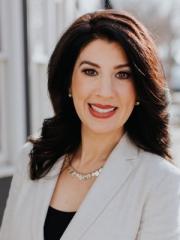
Desiree Chappell
MOM, CRNA and Host of The Roundtable Blog
Board of Directors, American Society of Enhanced Recovery (ASER). A passionate ambassador of Enhanced Recovery and Perioperative Care. Desiree is the creator of the popular Roundtable perioperative care blog: http://periopcareblog.com/
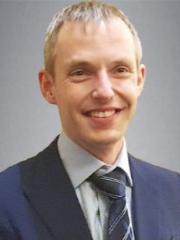
Andy Cumpstey
Andrew Cumpstey trained in general medicine, anaesthesia and intensive care medicine in
Cambridge, Oxford and Southampton. He completed his PhD at the University of Southampton, exploring the effect oxygen therapy has on oxidative stress in major surgery and critical illness.
His research interests include improving clinical outcomes from major surgery and intensive care, translational clinical studies in oxygen physiology and therapy, and physiological changes in extreme environments.
He works clinically in the Southampton region looking after patients having all forms of major surgery or needing intensive care admission. Outside of the hospital, he regularly provides medical, safety and logistical support to expeditions visiting remote mountain and polar regions.
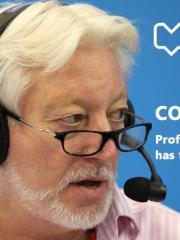
Prof. Monty Mythen
Co Founder and Editor In Chief of TopMedTalk
Monty is the Smiths Medical Professor of Anaesthesia and Critical Care at University College London and Adjunct Professor, Department of Anaesthesiology, Duke University, USA. Monty is also the founding Director of Evidence Based Perioperative Medicine International.

Adrian Gelb
Adrian Gelb is an experienced clinical-academic anesthesiologist with special expertise in anesthesia for neurosurgery. His research has included both laboratory and clinical with a focus on the interplay of neurosurgery, cerebral ischemia, and anesthetic pharmacology. His current focus is Global Health, specifically the perioperative echo system. Activities include Advocacy, Patient Safety, Metrics, Policy & Standards
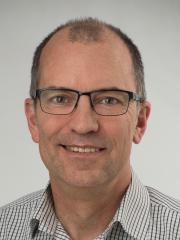
Wayne Morriss
Wayne trained in Christchurch and Melbourne and then moved with his family to Fiji in 2000 to work as a Senior Lecturer in Anaesthesia and Physiology at the Fiji School of Medicine. He and his family returned to Christchurch in 2002.
Wayne has continued to be involved with anaesthesia education in the Pacific region and further afield, and has been closely involved with the development and roll-out of international educational programmes, such as Essential Pain Management (EPM), Primary Trauma Care (PTC), Safer Anaesthesia From Education (SAFE) and the WFSA Fellowship Programme.
He is the current President-Elect of the World Federation of Societies of Anaesthesiologists (WFSA) and will take over as President in July 2022. He served as Chair of the WFSA Education Committee from 2012-2016 and Director of Programmes from 2016-2020.
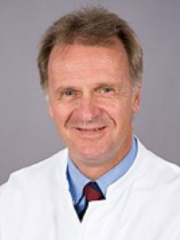
Christian Werner
After medical training in Germany, Professor Dr Christian Werner undertook a neuroanesthesia research fellowship at Michael Reese Hospital Medical Center, Chicago, USA. He was then appointed as Professor of Anesthesiology and Vice-Chair at the Technische Universität München, Germany and subsequently Professor of Anesthesiology and Chairman at the Johannes Gutenberg-Universität in Mainz.
He has served as Associate Dean for Academic Affairs and also Past President of the German Society of Anesthesiology and Intensive Care Medicine (DGAI) and on the Board of the International Anesthesia Research Society (IARS) as well as being a past Council member of the European Society of Anaesthesiology and Intensive Care (ESAIC).
He has authored, co-authored and collaborated on over 180 publications in peer-reviewed journals along with several book chapters and co-edited the German Anesthesia Textbook.






